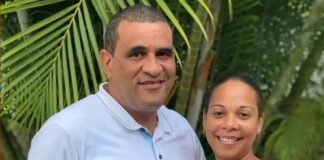The Bahamas is set to make history next week as it hosts its first international rocket landing, positioning the country as a rising player in the booming space tourism industry.
On Tuesday, SpaceX’s Falcon 9 rocket will launch from Cape Canaveral Space Force Station in Florida and make its first-stage landing on an autonomous droneship stationed off the coast of The Exumas.
The Bahamas Ministry of Tourism confirmed that the event will be regulated by the Federal Aviation Administration (FAA) and the Civil Aviation Authority Bahamas (CAAB). Bahamian aerospace expert Aisha Bowe, a former NASA scientist and founder of STEMBoard, played a key role in working with SpaceX to establish space protocols in the country, advancing its potential in space-related travel innovation.
“There is the possibility that residents of the area and visitors to The Bahamas may hear one or more sonic booms during the landing. All aspects of the Florida launch and The Bahamas arrival are subject to weather and other conditions,” the ministry stated.
A new era for Bahamian tourism
Tourism, Investments, and Aviation Minister I. Chester Cooper hailed the collaboration with SpaceX as a milestone for the country’s tourism sector.
“This historic collaboration further reinforces our commitment to innovation and expanding tourism offerings,” Cooper said. “We are proud to be the first international destination to host such a ground-breaking event, which will undoubtedly draw attention to the beauty and versatility of our islands while contributing to the development of space tourism in our beloved destination.”
The Bahamas will be the only destination where the public can witness Falcon 9 booster landings from a prime vantage point. The government has already approved 19 more landings throughout 2025, pending regulatory approval.
STEM education and future opportunities
As part of the partnership, SpaceX will conduct quarterly STEM (Science, Technology, Engineering, and Mathematics) and space-focused seminars to benefit Bahamian students and educators. The company has also pledged a US$1 million donation to the University of The Bahamas for STEM education.
“The Bahamas is poised to become a premier destination where travelers can immerse themselves in this exciting and emerging sector,” said Latia Duncombe, director general of the Ministry of Tourism, Investments, and Aviation.
Bowe, who has been instrumental in advancing The Bahamas’ role in aerospace activity, expressed pride in the country’s growing presence in space tourism.
“This event is not just about watching a rocket land—it’s about inspiring the next generation of Bahamians to see themselves as future engineers, astronauts, and space leaders,” she said.
With this landmark event, The Bahamas is stepping into a new frontier—one that blends tourism, science, and space exploration, solidifying its position in the evolving space tourism industry.















